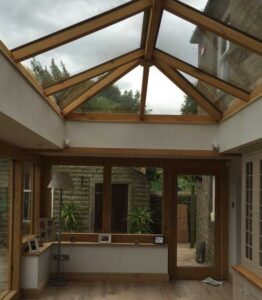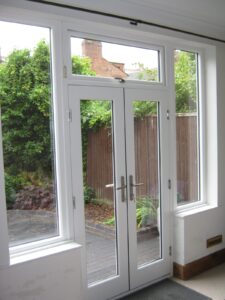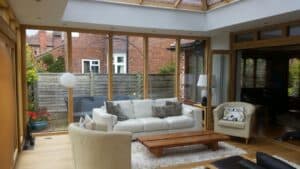A Guide to Popular Window Types for Your Home
Windows are more than just panes of glass shielding us from the elements; they’re the eyes of a home, offering...
Read MoreLast Updated: 2 August 2023

Since the advent of uPVC and aluminium, these materials have formed the foundation of most home improvement projects, overtaking timber due to better strength, energy efficiency, and robustness. For the longest time, timber had a historical reputation for being hard to maintain, prone to infestation, and detrimental to the environment amongst other drawbacks. Now thanks to the introduction of engineered timber practices homeowners no longer need worry about such factors, being able to enjoy timber’s natural beauty with infused modern sensibilities.
At Reddish Joinery, we use a particular brand of engineered timber known as Accoya®, which has been engineered using an acetylation wood modification process that completely reinvents its technical properties. Engineered timber such as this improves upon traditional solid timber by scanning specific sections of the wood to ensure that they’re fault free, compressed, and laminated to result in a remarkedly improved timber material.
The structure of the woods cells is changed entirely once undergoing the Accoya engineered acetylation process, so much so that the dimensional stability is vastly improved, bringing it more in line with the robustness of aluminium. Windows and doors made using engineered timber will be able to open with ease throughout the entire year, compensating for temperature fluctuations which with solid timber products would otherwise be prone to swelling.

Despite the vast number improvements engineered timber has over traditional wood, none of them ever come at the detriment of the environment with Accoya being specifically sourced sustainably from fast-growing softwood forests. It’s also certified by all the appropriate third party bodies to give modern homeowners the ultimate peace of mind as they enjoy great style as well as unparalleled security and efficiency.
Engineered timber overall generates 25% less waste than other solid timber styles and avoids the need to source whole pieces of defect free solid timber entirely. Quite literally every step and process has been meticulously thought out and planned to have the least impact possible on the environment, all while still delivering homeowners a product that is better than their historic counterpart in virtually every aspect.
Whereas previously timber could be considered well outside of the window and door material race, due to its inability to compete against the thermal efficiency and strength of aluminium and the low maintenance qualities of uPVC, engineered timber changes that. Engineered timber is a material that rivals and surpasses its competition for performance, durability, security and value in the window and door market.
Perhaps most importantly, engineered timber is the only material leading the charge to a greener future (as iterated upon in the prior section), so in this respect, opting to fit out your home with such products means shaping the landscape for future generations. With modern Accoya wood, no homeowner has anything to lose and perhaps a lot to gain.

We’ve hopefully cleared up a couple of myths with regard to the ideologies behind both Accoya wood and engineered timber. Just because a material as natural as timber undergoes an engineering process, doesn’t make it scary or in any way detrimental.
For more information on why engineered timber is good for use as windows and doors, call our team on 0161 969 7474 or send us a message online.
Windows are more than just panes of glass shielding us from the elements; they’re the eyes of a home, offering...
Read MoreIf you’ve noticed your window has become difficult to open or close there could be a number of problems going...
Read MoreWhen you’re living in a period property it can be difficult to find the balance between improving the efficiency of...
Read MoreWith energy bills continuing to soar, we’re all looking for ways we can conserve energy around our homes. When homeowners...
Read More